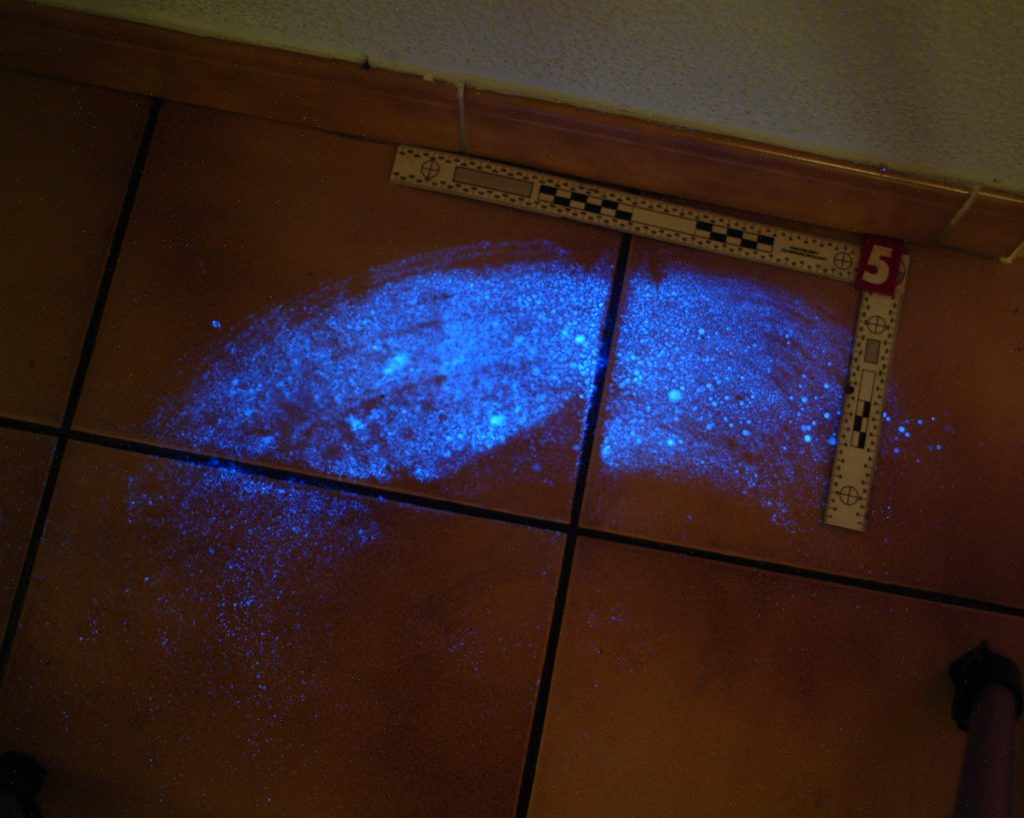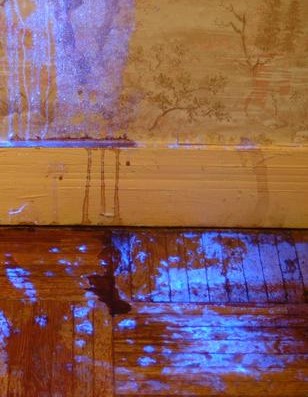Forensic science, clue hunters
Tarbes: Scientific police, the clue hunters

La nouvelle république des Pyrénées : November 4, 2021
The technical and scientific police of Tarbes opened us the doors of its service, the time of a day. Meeting with these technicians whose job feeds all the fantasies.
“They broke the door and turned everything upside down. A retired Tarbais, victim of a burglary, tells the sad state of the place to the forensic technician dispatched on the spot.
“Did you touch anything?” inquires Nicolas Levan, gloved and camera in hand. The policeman wants to know everything. “What time did you leave? Is that door still closed?” And when he spots mud still fresh on the ground, he asks to see the backyard. “They probably went through there.”
Because before getting out swabs and revealing powder, it is still necessary to understand the path of the authors to locate the surfaces on which they would have, by chance, deposited fingerprints and genetic traces. But this time, nothing happened. Jewelry boxes and a wooden box thrown carelessly on the bed do not allow the technician to find the slightest trace of a finger.
Tracked and traced
“Leather and wood are substrates on which gunpowder does not stick .” Last hope, pray that the burglars “swarmed” some of their DNA on the dresser’s wrists. “Once the sample is taken, we close the seal and send it for analysis. If there are biological traces, they will be compared in the National Automated DNA File (Fnaeg).” One of the two tools fed daily by law enforcement with the Faed, automated fingerprint file

Scanned on site, the seals then take the direction of the forensic laboratory of Toulouse, one of the five accredited to carry out the revelations in France (with Lille, Paris, Marseille and Lyon) , since the operational centralization of technical platforms in 2018.
Science and daily crimes
“There are several levels in forensics. The judicial police, which handles the big criminal cases, and the departmental public safety science services.”
In Tarbes, Nicolas Levan works with three agents under his responsibility. All women. “We mainly do misdemeanors.” Reports of people in police custody (papillary and genetic fingerprinting), robberies on wheels (in cars), burglaries… represent 90% of their activity. But sometimes, the members of the service are called for much more dramatic facts.
Bluestar on crime scene

“When a case goes unsolved after several months, it’s often because there were flaws in the initial scientific findings.” When he runs the Bluestar through Florence’s bathroom, the walls become stained with cleaned blood. “It’s a very powerful product. The morphoanalysis specialists took over to interpret the traces.” Expertise that have been confronted with the claims of the alleged author, and weakened his version of events. If he confides that being exposed to such violence can be psychologically difficult, Nicolas Levan- expresses the feeling of accomplished duty. “On this file, I was able to participate in the manifestation of the truth, for the benefit of the victim.”
American Myth
Far from the image conveyed by the American police series, the technical and scientific police of proximity are essential in the treatment of everyday cases. “I liked CSI Las Vegas. But the American judicial system and ours don’t work the same way. And to shatter a myth: “Only on TV do you systematically find DNA from a single hair.”
How to become a crime scene investigator?
Engineer, senior technician or technical and scientific police officer, several possibilities are available to you to exercise this expert profession. To become a senior technician, you must have a Bac +2, preferably in science or laboratory science and technology (STL). Preparatory classes for the chemistry grandes écoles, a university degree in physics and chemistry, and a Bts in bio-analysis and control are the preferred post-baccalaureate studies to prepare for the Ministry of the Interior’s competitive examination.
“For my part, I had tried the competition the first time,” explains Nicolas Levan. “The level was very high.” After a career as a pharmacy preparer, he was able to become a technician thanks to a system of equivalences. A senior technician can then become a technical and scientific police engineer after 4 years of experience in the public service, and obtaining an internal competition.





